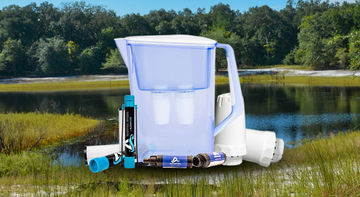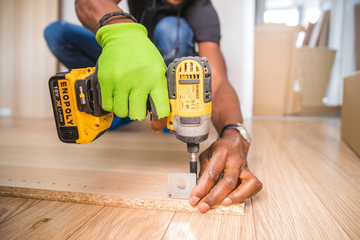Water is essential to life, and while it may seem like a given that you can find plenty of it in the outdoors, this isn't always the case. You may find yourself far away from civilization with no easy way to get your hands on safe drinking water. In this case, you'll need to be able to purify any water source or lake you come across. But how do you go about doing that? Water filtration is an important part of any camping trip. You want to be able to drink clean water without having to worry about getting sick or ingesting harmful chemicals. Water is essential to our survival, and we can’t live without it. But that doesn’t mean that all water is safe to drink—in fact, some of it can be downright dangerous. This is especially true if you’re spending a lot of time outdoors in places where there aren't many freshwater sources nearby. When you’re camping, hiking or just enjoying the great outdoors, it’s important to make sure that you can access clean drinking water.
This is especially true if you're going to be in a location where there are no natural water sources like rivers or lakes nearby. It can be very dangerous to drink from these because of parasites and other contaminants that may be present in them. The importance of water filtration when you’re outdoors cannot be emphasized enough. We all know that drinking contaminated water can make us sick, but did you know that even just brushing your teeth with unfiltered water can lead to gingivitis? So what should you do? How can we ensure that our water is safe to drink?
Ans: You need clean water. That’s why it’s important to have a reliable way to filter your water before you drink it or use it for cooking.
The first step in choosing the right water filter is to figure out what kind of water you’re dealing with. Remember that filtering water isn’t a one-size-fits-all proposition, and there are many variables at play when deciding which filter is right for your household. The most common way to filter water is through a standard water filter pitcher. These pitchers contain a carbon-based filter that strains harmful chemicals from your drinking water, leaving behind only clean, safe H20. There are many ways to filter water. The best way to decide which type is right for you is to consider your needs. The best way to filter water is a matter of personal preference. There are many different types of filters on the market, but they all fall into one of two categories: mechanical or chemical.
This is especially true if you're going to be in a location where there are no natural water sources like rivers or lakes nearby. It can be very dangerous to drink from these because of parasites and other contaminants that may be present in them. The importance of water filtration when you’re outdoors cannot be emphasized enough. We all know that drinking contaminated water can make us sick, but did you know that even just brushing your teeth with unfiltered water can lead to gingivitis? So what should you do? How can we ensure that our water is safe to drink?
Ans: You need clean water. That’s why it’s important to have a reliable way to filter your water before you drink it or use it for cooking.
The first step in choosing the right water filter is to figure out what kind of water you’re dealing with. Remember that filtering water isn’t a one-size-fits-all proposition, and there are many variables at play when deciding which filter is right for your household. The most common way to filter water is through a standard water filter pitcher. These pitchers contain a carbon-based filter that strains harmful chemicals from your drinking water, leaving behind only clean, safe H20. There are many ways to filter water. The best way to decide which type is right for you is to consider your needs. The best way to filter water is a matter of personal preference. There are many different types of filters on the market, but they all fall into one of two categories: mechanical or chemical.




